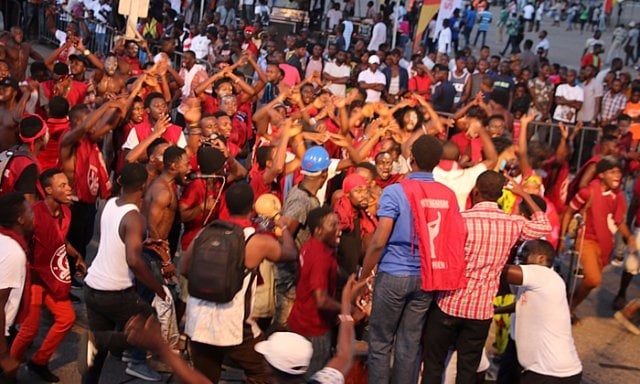The New Patriotic Party’s (NPP) Thank You Tour in Bantama, Ashanti Region, recently took a violent turn, raising concerns about the role of student groups in political events and the potential for such gatherings to escalate into conflict. The event, intended as a show of gratitude to supporters, was marred by a stabbing incident involving a student. This incident brought to light the involvement of the Kwame Nkrumah University of Science and Technology (KNUST) Jama Group, a student organization known for its vibrant musical performances and crowd engagement. The group confirmed their official engagement by Kennedy Agyapong’s aide to energize the event and create a festive atmosphere. This revelation sparked questions about the appropriateness of involving student groups in internal party affairs and the potential risks associated with such practices.
The KNUST Jama Group’s presence at the event was not in itself unusual, as their energetic drumming and chants are often employed to inject enthusiasm into both political and social gatherings. However, the circumstances surrounding their involvement, coupled with the subsequent violence, have drawn scrutiny. The group’s spokesperson confirmed that they were hired by Mr. Maxi, an aide to Kennedy Agyapong, specifically to bolster the candidate’s presence and generate a lively ambiance. This revelation prompted questions about the underlying motivations for hiring a student group for an internal party event, especially considering the potential for such a dynamic to escalate into unintended consequences.
The incident itself stemmed from a dispute over the distribution of money provided by Mr. Maxi, presumably to the KNUST Jama Group members. Eyewitness accounts depict a chaotic scene erupting amidst the tour proceedings, with tensions escalating rapidly over the allocation of funds. This altercation ultimately led to the stabbing of a student, who subsequently received medical attention at the Komfo Anokye Teaching Hospital. The incident underscores the potential for seemingly minor disputes to spiral into violence, particularly in highly charged environments such as political rallies.
The stabbing incident and the surrounding circumstances have sparked a broader debate about the role of student groups in political activities. Critics question the propriety of involving students in what is essentially an internal party affair, suggesting that it blurs the lines between academic pursuits and partisan politics. They also argue that it exposes students to unnecessary risks, as evidenced by the violence that erupted at the Bantama event. Furthermore, concerns have been raised about the potential for such involvement to create divisions within the student body, particularly when students align themselves with different political factions.
Proponents of student involvement in politics, on the other hand, argue that it provides a valuable platform for young people to engage with the political process and exercise their democratic rights. They contend that such participation allows students to develop their understanding of political issues and contribute to shaping the future of their nation. Moreover, they argue that student groups can play a positive role in energizing political events and fostering a sense of community. However, they also acknowledge the need for safeguards to ensure that student involvement remains peaceful and does not compromise their academic pursuits.
The incident at the NPP Thank You Tour serves as a stark reminder of the potential for political events to become volatile, especially when combined with the presence of student groups and disputes over financial matters. It underscores the importance of careful planning and appropriate security measures to prevent such incidents from occurring. Furthermore, it highlights the need for a broader discussion about the role of student groups in political activities, balancing their right to participate with the need to protect them from harm and ensure that their involvement does not detract from their primary focus – education. The incident also raises questions about the ethical implications of using student groups to bolster political campaigns and the potential for such practices to create an environment conducive to conflict.


